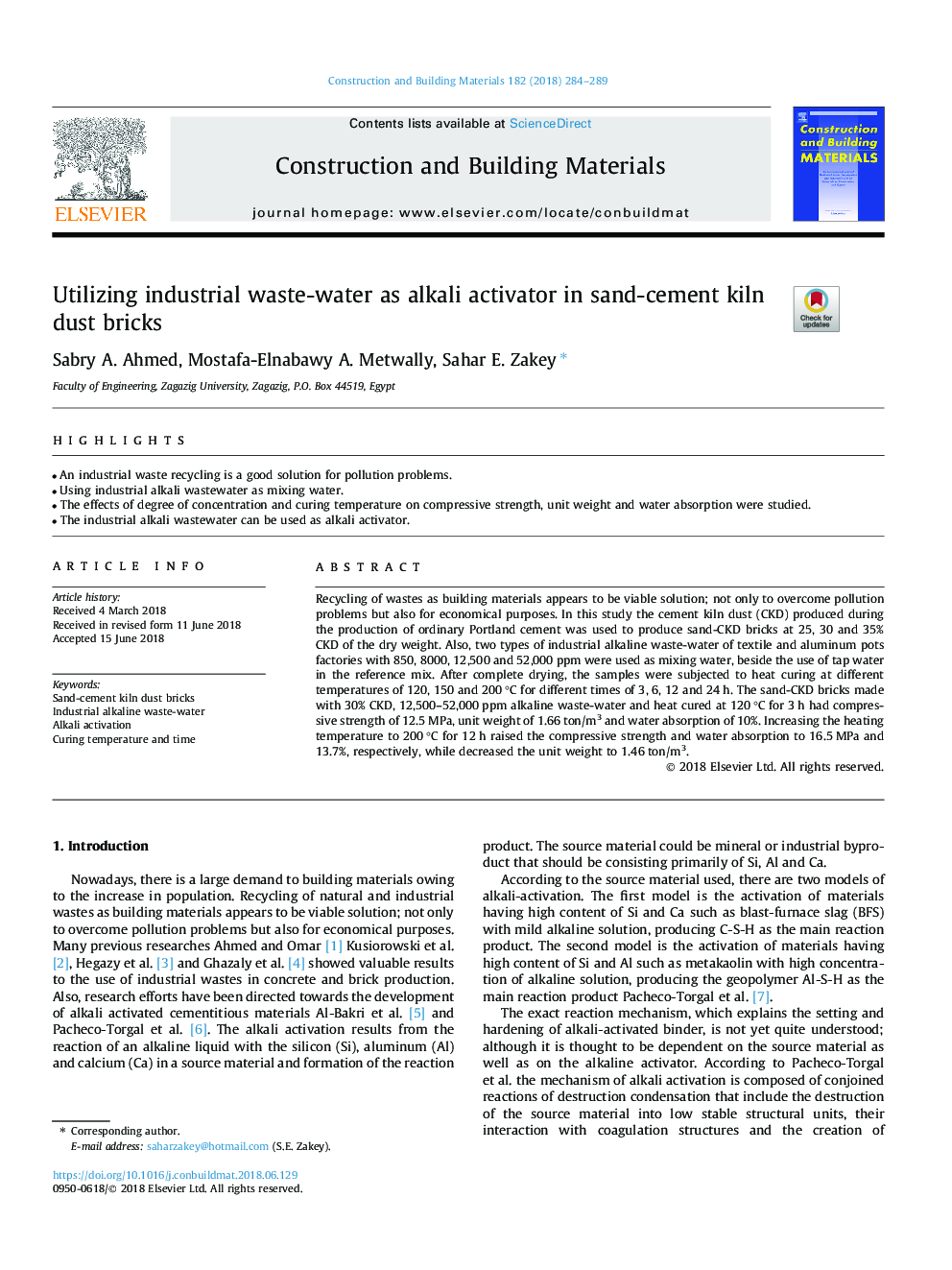| Article ID | Journal | Published Year | Pages | File Type |
|---|---|---|---|---|
| 6712175 | Construction and Building Materials | 2018 | 6 Pages |
Abstract
Recycling of wastes as building materials appears to be viable solution; not only to overcome pollution problems but also for economical purposes. In this study the cement kiln dust (CKD) produced during the production of ordinary Portland cement was used to produce sand-CKD bricks at 25, 30 and 35% CKD of the dry weight. Also, two types of industrial alkaline waste-water of textile and aluminum pots factories with 850, 8000, 12,500 and 52,000â¯ppm were used as mixing water, beside the use of tap water in the reference mix. After complete drying, the samples were subjected to heat curing at different temperatures of 120, 150 and 200â¯Â°C for different times of 3, 6, 12 and 24â¯h. The sand-CKD bricks made with 30% CKD, 12,500-52,000â¯ppm alkaline waste-water and heat cured at 120â¯Â°C for 3â¯h had compressive strength of 12.5â¯MPa, unit weight of 1.66â¯ton/m3 and water absorption of 10%. Increasing the heating temperature to 200â¯Â°C for 12â¯h raised the compressive strength and water absorption to 16.5â¯MPa and 13.7%, respectively, while decreased the unit weight to 1.46â¯ton/m3.
Keywords
Related Topics
Physical Sciences and Engineering
Engineering
Civil and Structural Engineering
Authors
Sabry A. Ahmed, Mostafa-Elnabawy A. Metwally, Sahar E. Zakey,
